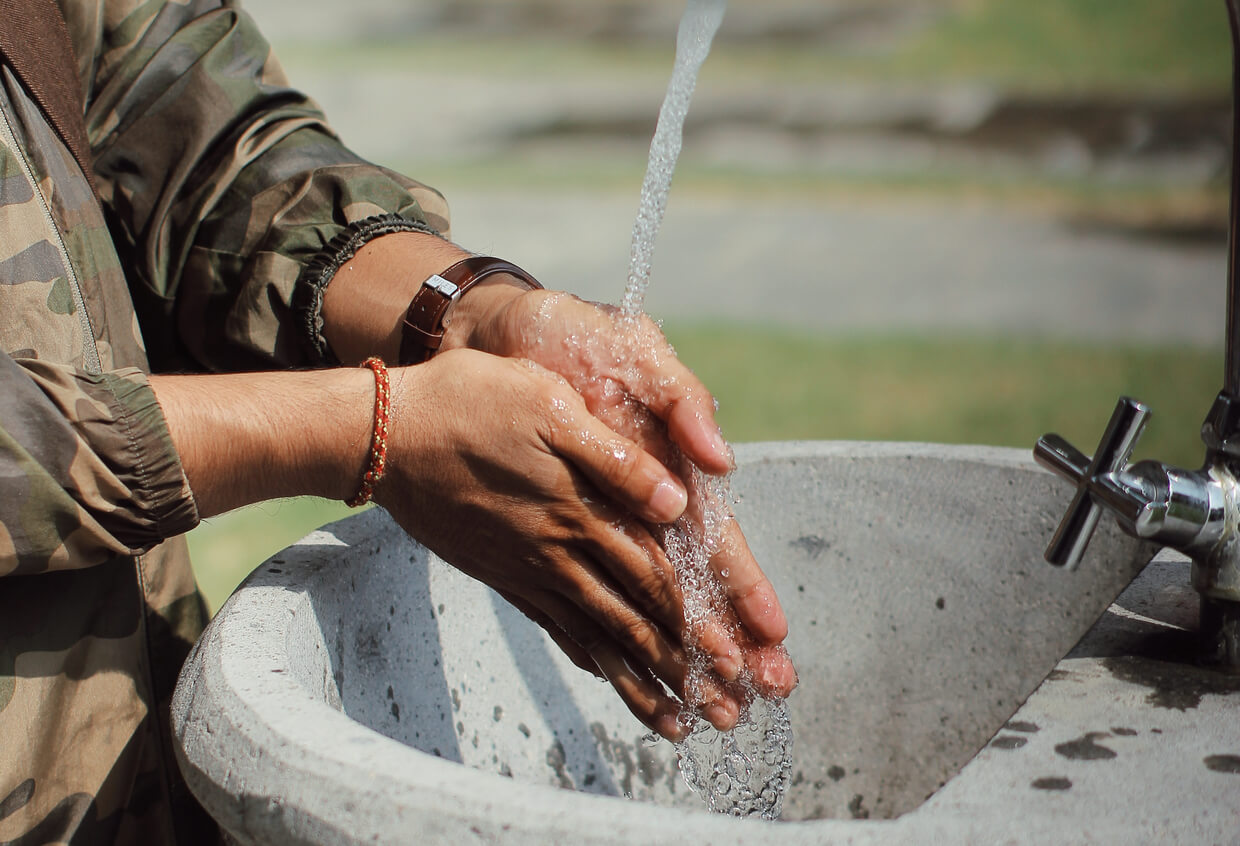Government Promises Faster Process for Camp Lejeune Toxic Water Claims
Editors carefully fact-check all Drugwatch.com content for accuracy and quality.
Drugwatch.com has a stringent fact-checking process. It starts with our strict sourcing guidelines.
We only gather information from credible sources. This includes peer-reviewed medical journals, reputable media outlets, government reports, court records and interviews with qualified experts.

Settlements could be coming sooner for those who’ve filed lawsuits against the U.S. government for health effects caused by toxic water at Marine Corps Base Camp Lejeune. The U.S. Department of Justice and the Department of the Navy say the application process has now been streamlined.
Already more than 93,000 people have filed claims against the government after being diagnosed with a serious health issue linked to tainted water at the North Carolina military base. Those who qualify for a settlement were stationed or worked at Camp Lejeune between 1953 and 1987.
Now a new choice for filing claims, called the Elective Option, is being offered. This should allow those eligible for a payout to receive the funds faster than going to court. Potential payouts range from $150,000 to $450,000, along with an additional $100,000 offered if the exposure resulted in a death.
“The Elective Option is a critical step in bringing relief to qualifying claimants impacted by the contaminated water at Camp Lejeune, who will now have an avenue for receiving quick and early resolution of claims under the Camp Lejeune Justice Act,” Associate U.S. Attorney General Vanita Gupta said in a statement.
Elective Option to Streamline Process
The Justice Department and the U.S. Navy will contact the thousands of people who’ve already filed claims and are qualified for the Elective Option. Claimants will then have 60 days to decide if they want to accept the offer or continue seeking a larger settlement. A specific timeline hasn’t been announced, but officials say settlements should come soon after a claim is accepted.
About 18,000 claims are currently being processed by the Navy and many more are expected to be filed. The Navy is having difficulties keeping up with the flood of lawsuits. In May 2023, U.S. Sen. Marco Rubio questioned the delays. Navy officials said they need additional funding and staff to process all of the claims in a timely manner.
Thousands of claims were made soon after President Joe Biden announced the Camp Lejeune Justice Act of 2022. It was part of the PACT Act, which was signed into law in August 2022. The legislation allows anyone harmed by the toxic water at Camp Lejeune to file a lawsuit against the federal government.
Camp Lejeune Water Contamination
The water at Camp Lejeune was found to contain several contaminants, including trichloroethylene (TCE), perchloroethylene (PCE), benzene and vinyl chloride. Water at the Marine Corps base became tainted by a combination of on-base and off-base chemical spills. The off-site spill is blamed on a dry cleaning business that improperly disposed of waste. That area has since been designated a U.S. Environmental Protection Agency Superfund site.
The Department of Veterans Affairs estimates up to 900,000 service members may have been exposed to the toxic water. The same tainted water also supplied the base’s hospital, barracks, housing, offices and schools. Chemicals in the water are believed to cause several serious health problems, including:
- Adult leukemia
- Birth defects
- Cardiac defects
- Malformations
- Miscarriage
- Multiple forms of cancer
- Multiple myeloma
- Neurobehavioral effects
- Non-Hodgkin lymphoma
- Renal disease
- Skin disorders
Not everyone exposed to the chemicals will have a health problem. Whether or not someone develops an issue depends on how long they were exposed, how much they were exposed to, how they were exposed (drinking or breathing) and their overall health.
A Journal of the American Medical Association study published in May found that people stationed at Camp Lejeune were 70% more likely to be diagnosed with Parkinson’s disease compared to those who were stationed elsewhere.
The study compared data from the Veterans Health Administration and Medicare records of more than 300,000 veterans. Results showed that hundreds of Camp Lejeune veterans had developed Parkinson’s disease and many others who weren’t diagnosed showed early signs of potentially developing the brain disorder.


